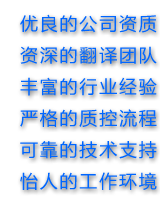青岛翻译公司整理:植物种子和器官大小调控机理
植物种子和器官大小调控机理
关键词:植物,种子,器官,大小,调控机理
植物种子和器官大小是重要的产量性状,大小调控也是一个基本的发育生物学问题。然而,植物决定其种子和器官最终大小的分子机理目前并不清楚。为了揭示植物种子和器官大小调控的分子机理,中国科学院遗传与发育生物学研究所李云海研究组已在拟南芥中分离了一些大种子和器官的突变体da (DA是汉字“大”的意思)。其中,da1-1 突变体形成大的种子、器官和粗壮的植株。DA1 编码一个泛素受体蛋白,通过抑制细胞分裂从而调控植物种子和器官大小。
为了进一步理解DA1作用的分子机制,李云海研究组分离了一系列da1-1 的增强子(eod)和抑制子(sod)突变体。其中,sod2 在种子和器官大小上完全上位于da1-1,表明SOD2 作用在DA1 的下游调控种子和器官大小。然而遗传分析表明SOD2与我们以前发表的E3泛素链接酶DA2和EOD1作用在不同的遗传途径。通过图位克隆的方法分离了SOD2 基因。SOD2 编码一个去泛素化酶UBP15(ubiquitin-specific protease 15)。sod2 单突变体形成小的种子和器官,而过量表达SOD2 导致种子和植株变大,表明SOD2/UBP15是种子和器官大小调控的关键因子。细胞学分析揭示了SOD2是通过促进珠被的细胞分裂,从而母性影响种子大小。进一步的研究表明,在da1-1 突变体中,SOD2蛋白显著积累,说明DA1调控了SOD2的蛋白稳定性。
免疫共沉淀等实验揭示出DA1能够与SOD2在体内和体外直接互作,表明SOD2是DA1的直接底物。因此,遗传学和生物化学的研究结果揭示了泛素受体DA1通过直接与去泛素化酶SOD2互作,并介导SOD2的降解,从而调控植物种子和器官大小的新机理。该研究不仅在理论上为植物种子和器官大小调控机理的研究提供重要思路,也将为作物高产育种提供理论基础。
该研究成果于2月28日在线发表于Plant Cell杂志。李云海研究组的博士研究生杜亮和助理研究员李娜为该文章的共同第一作者。该研究得到了科技部、国家自然基金和中科院百人计划资助。
英文摘要
Plant Cell
The Ubiquitin Receptor DA1 Regulates Seed and Organ Size by Modulating the Stability of the Ubiquitin-Specific Protease UBP15/SOD2 in Arabidopsis[W]
Liang Dua,b,1, Na Lia,1, Liangliang Chena,b, Yingxiu Xua,c, Yu Lia,b, Yueying Zhanga,b, Chuanyou Lic and Yunhai Lia,2
Although the control of organ size is a fundamental question in developmental biology, little is known about the genetic and molecular mechanisms that determine the final size of seeds in plants. We previously demonstrated that the ubiquitin receptor DA1 acts synergistically with the E3 ubiquitin ligases DA2 and ENHANCER1 OF DA1 (EOD1)/BIG BROTHER to restrict seed growth in Arabidopsis thaliana. Here, we describe UBIQUITIN-SPECIFIC PROTEASE15 (UBP15), encoded by SUPPRESSOR2 OF DA1 (SOD2), which acts maternally to regulate seed size by promoting cell proliferation in the integuments of ovules and developing seeds. The sod2/ubp15 mutants form small seeds, while overexpression of UBP15 increases seed size of wild-type plants. Genetic analyses indicate that UBP15 functions antagonistically in a common pathway with DA1 to influence seed size, but does so independently of DA2 and EOD1. Further results reveal that DA1 physically associates with UBP15 in vitro and in vivo and modulates the stability of UBP15. Therefore, our findings establish a genetic and molecular framework for the regulation of seed size by four ubiquitin-related proteins DA1, DA2, EOD1, and UBP15 and suggest that they are promising targets for increasing seed size in crops.
——新疆翻译公司
译声新疆翻译公司目前是国内专业的翻译机构之一,译声新疆翻译公司秉承“诚信 专业”的服务理念,为国内外客户提供一流翻译服务。了解更多信息:请直接致电:400-600-6870咨询。
发表评论:













